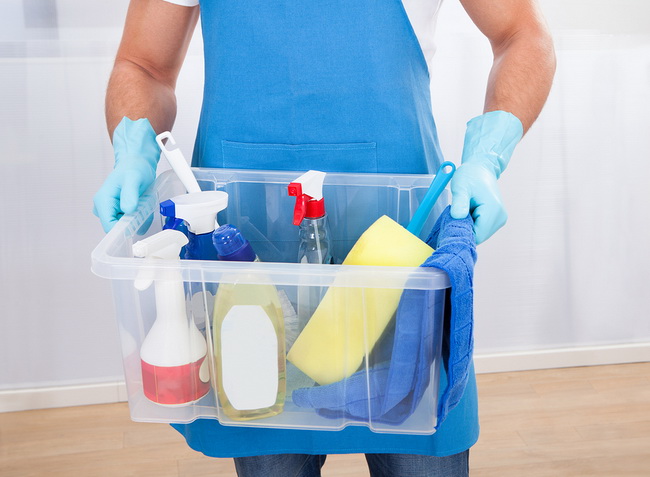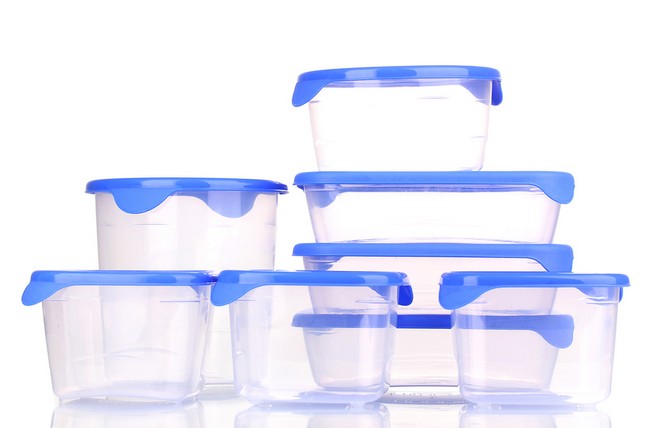- Make It Yourself Lavender Heart-Shaped Bath Bombs!
- 20 Things You Never Knew About “Down There”
- 12 Best Foods For Those Suffering From Arthritis Pain
- 12 Personal Hygiene Mistakes Almost Everyone Makes (Mom Never Told You About #4!)
- 15 Medicinal Plants And Herbs From The Cherokee People
- 12 Mind-Blowing Benefits Of Drinking Coconut Water During Pregnancy
- 12 Outstanding Winter Foods That Won’t Fatten You Up Like A Christmas Turkey
12 Common Hormone Disruptors And How To Avoid Them (You Won’t Believe #9!)

Photo credit: bigstock.com
Chances are pretty good that you eat well, try to get regular exercise, and get plenty of sleep but you are actually surrounded by chemicals that interrupt your natural hormone production and development as well as your immune system, not to mention their possible neurological effects.
The chemicals that we are speaking about mimic some hormones in your body, including estrogen, androgen, and thyroid hormones. Chemicals that mimic natural hormones block the hormonal signals in the body and/or interfere with the way hormones work.
These chemicals can change the way hormones travel throughout the body and they can even alter your natural, normal hormone levels. Hormone disruptors are often referred to as endocrine disruptors because they interrupt or mimic all the endocrine glands in the body including the thyroid, pancreas, testes, pituitary, adrenal, thymus, and ovaries.
As you can imagine, altering with these precisely timed and tuned systems is playing with fire. Worse still, you are coming into contact with these chemicals every single day.
The World Health Organization released a report in 2013 which stated that exposure to these types of chemicals can lead to serious health problems including:
- Developmental problems in the nervous system in children
- Thyroid cancer
- Non-descended testes in young men
- Prostate cancer
- ADHD in children
- Learning and memory problems
- Obesity
- Infertility or reduced fertility
- Heart disease
Some of these effects might not show up for decades and some scientists have suggested that many adult diseases or infertility problems actually started when they were still fetuses and their mothers were exposed to these hormones.
By the way, it’s not just humans who are affected by these chemicals. These hormone disrupting chemicals are found in our air, food, water, and are putting wildlife at risk. Fish in the Great Lakes, for example, have been found to have reproductive problems and abnormal swelling of the thyroid gland due to a common endocrine disruptor known as PCBs (polychlorinated biphenyls)
How often are you being exposed to these hormone interrupting, cancer causing chemicals? Most likely, a great deal more than you think!
One professor from the University of Massachusetts Amherst who specializes in how chemicals affect our endocrine system, Thomas Zoeller, has stated that there are more than 1,000 of these chemicals on the American market place today.
We have made a list of the top 12 most common sources of these chemicals, chemicals you probably have at least some contact with on a daily basis. See which ones you are exposed to on a regular basis and find out what you can do to limit or stop your exposure.
Continue to Page 2

Photo credit: bigstock.com
1. Everyday Cleaning Products
Even those green, “alternative” cleaning products, which we believe to be safe, were tested and they found that some of them had as many as 55 chemicals! Don’t trust your health to any type of cleaning product, even green or so called “organic” ones. One common ingredient used in many all-purpose cleaners and laundry soaps is called NPE (nonylphenol ethoxylates). This chemical is banned in Europe because it is a well-known powerful endocrine disruptor. Use simple, homemade cleaners such as vinegar, lemon juice, baking soda and essential oils.
2. Personal Care Products
Almost all shampoos, cosmetics, hair conditioners, face creams, and lotions contain more than one type of endocrine disruptors, the main one being phthalates. Phthalates are chemicals which cause the males of most species to become more female. Phthalates have been shown to disrupt the endocrine systems of wildlife including low sperm count, infertility, testicular cancer, and genital deformation. We don’t mean just fish either; we are talking about deer, otters, whales, and polar bears. The Environmental Working Group conducted a study in 2002 which found phthalates in about ¾ of all personal care products tested.
Another common endocrine disruptor is called triclosan, which is found in all soaps and products that say they are “antibacterial”, including a top selling brand of toothpaste! Read labels on all personal care products you use! Make as many of these products at home from natural ingredients as you can, and avoid any and all products that contain phthalates or triclosan.
3. Sunscreens
Commercially made sunscreens have the largest concentration of chemicals anywhere and none of them are good. Phthalates and cyclosilozanes, which in one study caused liver and lung damage in tests done with mice, are commonly used in most sunscreens. Use more natural products or wear hats, use umbrellas, and wear long sleeved clothing to avoid over exposure to the sun.
Continue to Page 3

Photo credit: bigstock.com
4. Drinking Water
Although bottled water has not been proven to be safer than tap water, that is not to say that tap water is good for you! Your tap water might contain arsenic, atrazine, or perchlorate, all of which interrupt your natural endocrine system. Invest in a whole house water filtration system to protect you and your family. Read how to remove heavy metals from tap water.
5. Cash Register or ATM Receipts
Almost all ATM and cash register receipts today use thermal paper. This type of paper has a special coating on it that turns black when heat is applied to it. Computerized cash registers and ATM machines apply heat to print numbers and letters, eliminating the chances of running out of old fashioned ink. However, this type of paper contains BPA and numerous studies have shown that simply touching this paper for as little as 5 seconds is enough to transfer this BPA to your skin, which will then pass to your bloodstream. Even more so if you had wet or greasy fingers (such as after applying hand cream or eating greasy foods). You aren’t safe putting that receipt in your wallet or purse either as the BPA gets transferred to whatever it touches. Avoid carrying any type of receipt that you don’t need to. You should also wash your hands after handing money or receipts. If you don’t need a receipt, don’t accept one. If you work handling receipts or money, you might want to consider wearing gloves.
6. Canned Foods
In a research product which analyzed more than 252 brands of canned foods, 78 are still using BPA (bisphenol-A) in their products. BPA is a very well-known endocrine disruptor and has been linked to numerous health problems, especially for pregnant women. Some of the problems reported from exposure to BPA are:
- Altered immune function
- Structural damage to the brain
- Abnormal sexual behavior
- Simulation of cancer cells in the prostate
- Increased levels of aggressiveness, impaired learning, and hyperactivity
- Early puberty
- Disrupted reproductive cycles
- Ovarian dysfunction
- Increase in fat formation and increased risk of obesity
- Decrease in sperm production
- Enlarged prostate
In North America, BPA coats the inside of approximately 75 percent of the canned foods sold every day. Even so called BPA-free cans are not safe as they are often coated with a similar chemical called BPS. Avoid plastic containers or canned foods. Opt for fresh, organic foods, or glass bottles and jars.
Continue to Page 4

Photo credit: bigstock.com
7. Office Products
One of the most common places where we are exposed to these chemicals is at work. Many office products including toner, ink cartridges, some computer paper, and other types of solvents are often loaded with these chemicals. Handle these products with care and, as much as possible, limit your exposure to them. Wash your hand after handling any of these types of products.
8. Conventionally Grown Produce
There is good reason to buy organic! Conventionally grown produce is sprayed several times during each growing season with herbicides, pesticides, and chemically filled fertilizers that endanger your health, not to mention interrupting your endocrine system. Buy organic fruits and vegetables as much as possible. We do realize that these are more expensive, but you can drastically cut your produce costs by growing many of your own vegetables.
9. Kitchen Products
We aren’t even safe in our own kitchens! Two of the most common hazards are plastic containers and non-stick cookware. First, plastic containers contain BPA and/or other types of hormone disrupting chemicals, especially when heated. PFAS (poly and perfluoroalkyl) compounds are used to make non-stick, water repellant, and stain-resistant surfaces that are toxic the body.
Non-stick (Teflon) cookware releases a dangerous chemical called PFOA (perfluorooctanoic acid) which has been linked in numerous studies to infertility, reproductive problems, thyroid disease, and developmental problems. Under high heat, non-stick cookware releases enough poisonous chemicals that it can kill small birds. Now imagine what this is doing to you? Opt for healthier cookware options including cast iron, copper, glass, and ceramic cookware.
Continue to Page 5

Photo credit: bigstock.com
10. Conventional Meat and Dairy Products
Animals that are fed concentrated animal feed on conventional meat farms are also a danger to our health. This type of food contains antibiotics, growth hormones, and other types of industrial chemicals that get passed on to you through the animal’s meat or dairy product. Always buy organic dairy and look for meat that comes from free range, grass fed, organic animals that are typically raised on small family farms to avoid ingesting these chemicals directly.
11. High Mercury Fish
Although it appears that all fish in the world is now contaminated to some degree with mercury, there are some fish that are more contaminated than others. Some of the worst offenders are tilefish, swordfish, shark, king mackerel, and marlin. Farmed fish, while not higher in mercury, are loaded with antibiotics and other chemicals because, much like conventional beef, they are fed concentrated animal foods. Be very choosy when it comes to fish and make your selections very carefully.
SEE ALSO: 11 Dangerous Toxins that are Harming Your Thyroid
12. Flame Retardants/ Stain Resistors
Many of the furnishings we buy including carpet, sofas, carpet padding, rugs, and mattresses have been treated with either flame retardants or stain resistant chemicals. Although both of these sound like a good idea, they are all endocrine disruptors. Even after you cannot smell that “new” smell, they are still putting out gasses that you will breathe in daily. Just some of the chemicals found in these products are formaldehyde, PFCs, antimony, boric acid, PBDE, and other types of brominated chemicals. Select natural, less flammable types of materials as you replace these items such as cork, leather, tile, wool, and cotton.
To sum it up, stick with whole foods and natural products as much as you possibly can. The fewer ingredients something contains, the better it probably is for you. Anything you plan to put on your body, in your body, or in your home make sure that you are familiar with its contents. If you can’t pronounce the name of an ingredient, chances are you don’t want it in your life.
References:
































